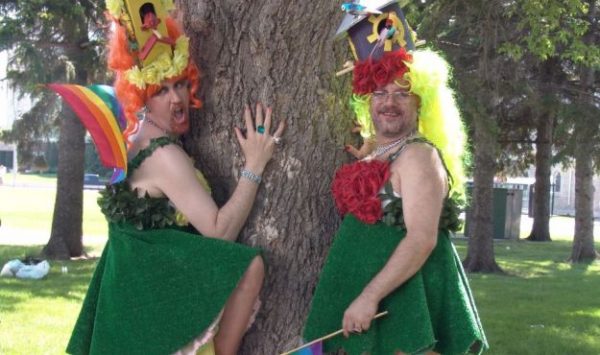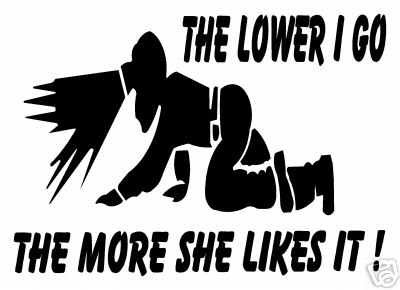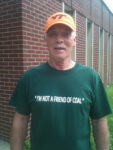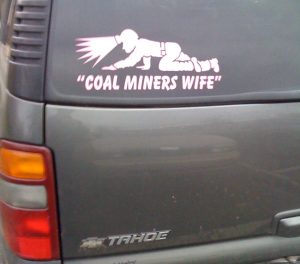“Where’s your dress,” I heard someone yell out as I went up to the microphone to speak to the National Academies of Sciences on the health impacts of mountaintop removal a few months back. I had heard it a couple years ago for the first time when I spoke at a rally against MTR at the WV State Capitol. Being use to coal-supporter heckling, I initially brushed it off. I had never considered that being a cisgender male in the environmental movement was the issue. Then it dawned on me. They are trying to insult my masculinity. As if being a male and being concerned about the environment and health of people somehow makes me less of a man.
I had stewed over the idea for a while but I thought I was maybe just reading too much into it. Then I had a conversation with friends and the pieces started to fall into place. A lot of the same arguments naysayers use against feminist movement are also used against the environmental movement. We are “overreacting, hysterical,” and so on. It is true that the majority of environmental movements around the world have been led by women, but that in no way makes the issues any less important. But big coal, gas, and oil want you to think it does. And being a man following this lead somehow makes you anything but.
Energy Secretary Rick Perry’s recent obnoxious comments suggesting fossil fuels can help prevent sexual assault seems to solidify and perpetuate this idea of toxic masculinity in fossil fuels. I’m sure it was no coincidence his comments were made on the heels of the #MeToo social media campaign showing the staggering number of women who have experienced sexual assault.
I think this particular flavor of toxic masculinity can be connected to this idea that fossil fuel industries are made up of these strong men doing a job that can protect women. The terrible irony is everything about fossil fuel industries is a reinforcement of rape culture: those with power forcefully taking what they want from others and you can’t do a thing about it.

The idea of the “strong masculine man” has always been used to promote fossil fuels. Like this “miner” from a 2005 General Electric ad promoting “clean coal.”
Toxic masculinity is a problem throughout society today. I am not trying to diminish the struggles elsewhere. But it seems fossil fuel industries are built on the idea of masculinity. If you really look at the history of fossil fuel culture, it has always promoted this hyper-masculinity. The narrative has been the only people working in mines and on drill rigs, etc., were these tough men putting their lives on the line to feed their women and children back home. And when something happens it is always the men you hear about. It is an idea that has been ingrained in the fossil fuel industries—if you are not a man getting dirty doing dangerous jobs to support their family somehow you are less of a man.
I remember when the Friends of Coal Facebook page (since removed) used a photo of two men dressed as mythical fairies around a tree to describe “treehuggers.” Then there was the time Chris Hamilton, vice president of the WV Coal Association made the offhanded comment about drag queens.
Young boys are told to go work in these industries “like daddy and granddaddy.” Being from Boone County, self-described “Gateway to the Billion Dollar Coalfields” of WV, I heard it all the damn time. Still do,even to this day: “ Follow in the footsteps of the men in your family.“ What if I wanted to be a paramedic/firefighter like my mom, though? Nope, I was more of a man if I went into the mines.
Around here, we see bumper stickers on cars like “Coal Miner’s Wife” or “Oil Field Princess,” as if a woman’s identity has to be tied to the men in fossil fuels. Some slogans they use are too vulgar and degrading to women to describe.
And, when we had two women as head of the EPA, Lisa Jackson and Gina McCarthy, the oil, gas, and coal industries and their political supporters made it sound like the end of the world. I could give examples all day. Right down to the MAN-camps workers stay in for Fracking. I’m sure my friends in other areas can give examples of fossil fuel toxic masculinity too. I welcome them in the comment section below.
Yes, OVEC is a woman-led environmental organization. Yes, I am, while writing this, the only male on permanent staff. (We do have Nate Luton as our VISTA, but, by design, VISTAs are temporary positions.) Does it bother me or make me any less of a man? Hell, no! Appalachians must move away from these ideas that the only jobs suitable for men are ones where they have to get their hands dirty and put their lives on the line to take care of their women and children. And we must put an end to two dominating legacies—toxic fossil fuels and toxic masculinity.













Dustin, great commentary. As someone who is an activist and a writer living in Appalachia, I’ve never considered the sexual side of an industry I just equate with destruction. Yep. I can see the psychology and romanticizing of mining as a masculine calling, taking care of the family, pride and macho exploitation as a way to make a dirty and dangerous industry appealing. But it just makes the men who participate in the destruction caused by mining appear forced to take these jobs because WVA offers nothing else. And they make it acceptable with a jacked up image and sexy bumper stickers. Just from the lhe little I do know about the history of coal mining, there were some tough women fighting the coal companies. Domestic violence describes the fossil fuel industry better…dangerous, dirty work that preys on men, women and children. The preps are the corporations, the victims are everybody else tangled in the death Web of extraction.
Very thoughtful and on-point, Dustin. Thanks for your thoughts.
Dustin would you be available to be interviewed sometime? I’m writing a series of articles about the impact of “toxic masculinity” in WV (with a focus on addiction) for a journalism course and would love your perspective to be included.
Hi Dustin thank you for sharing, I’m a journalist and wondering how I can get in touch with you.